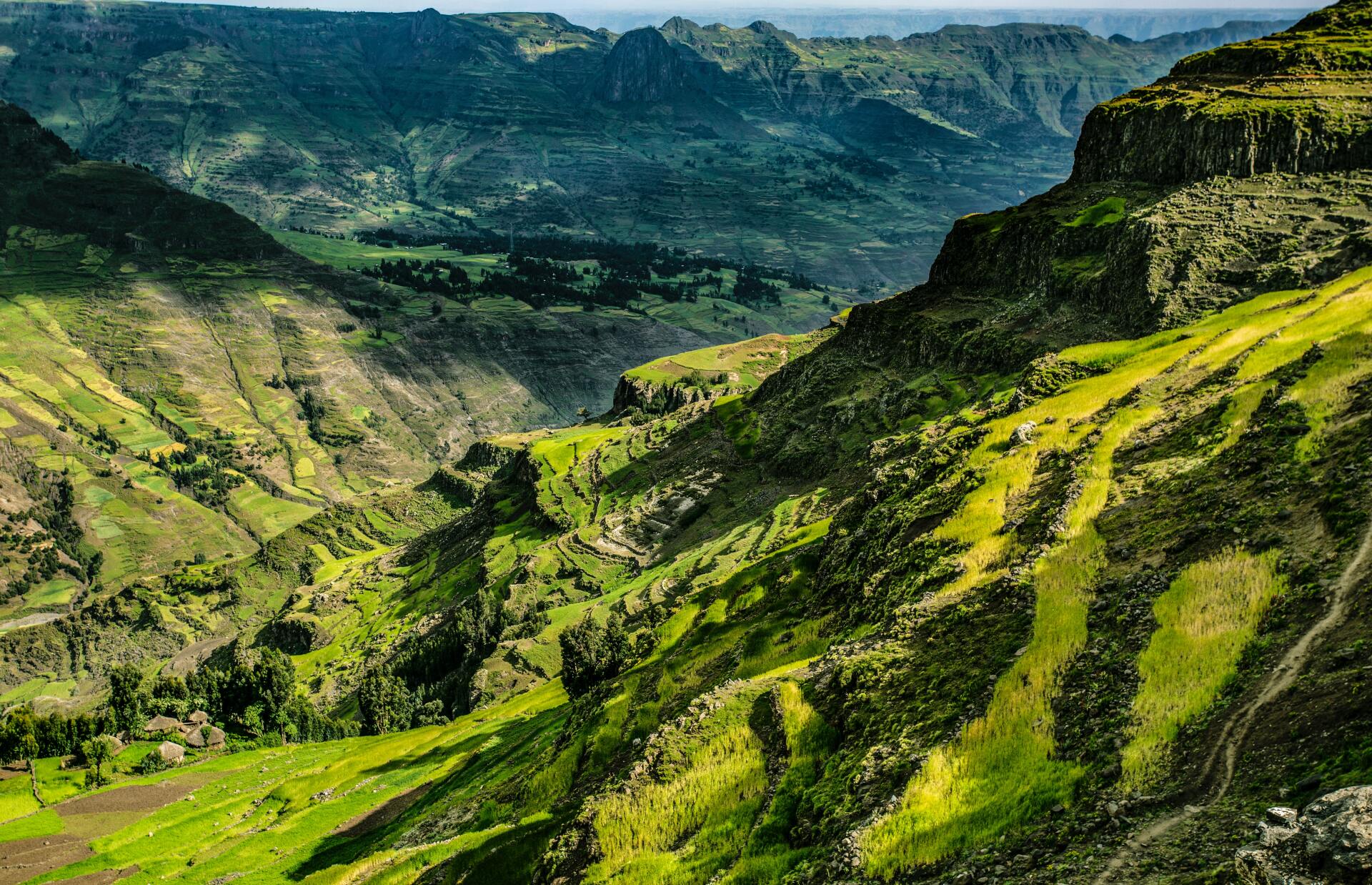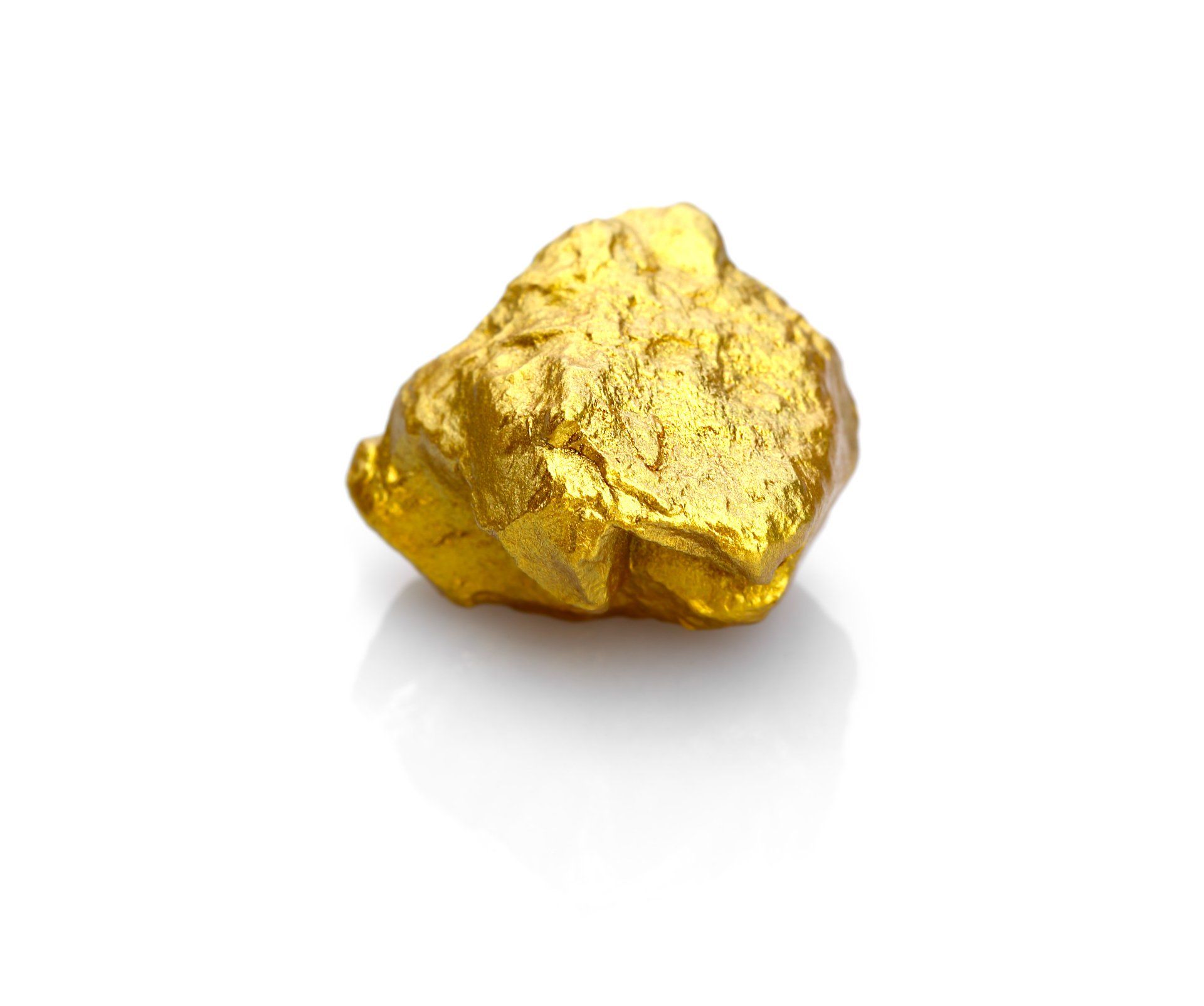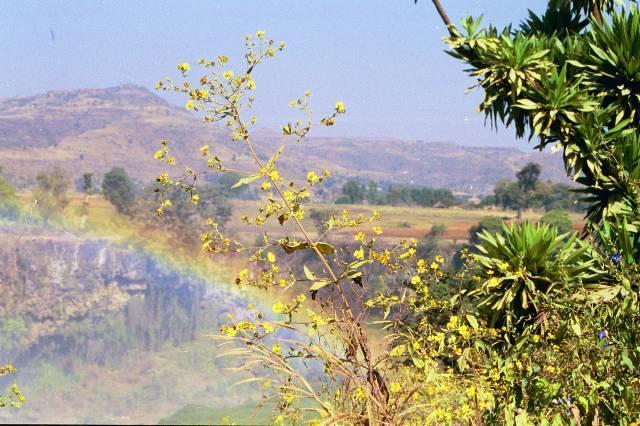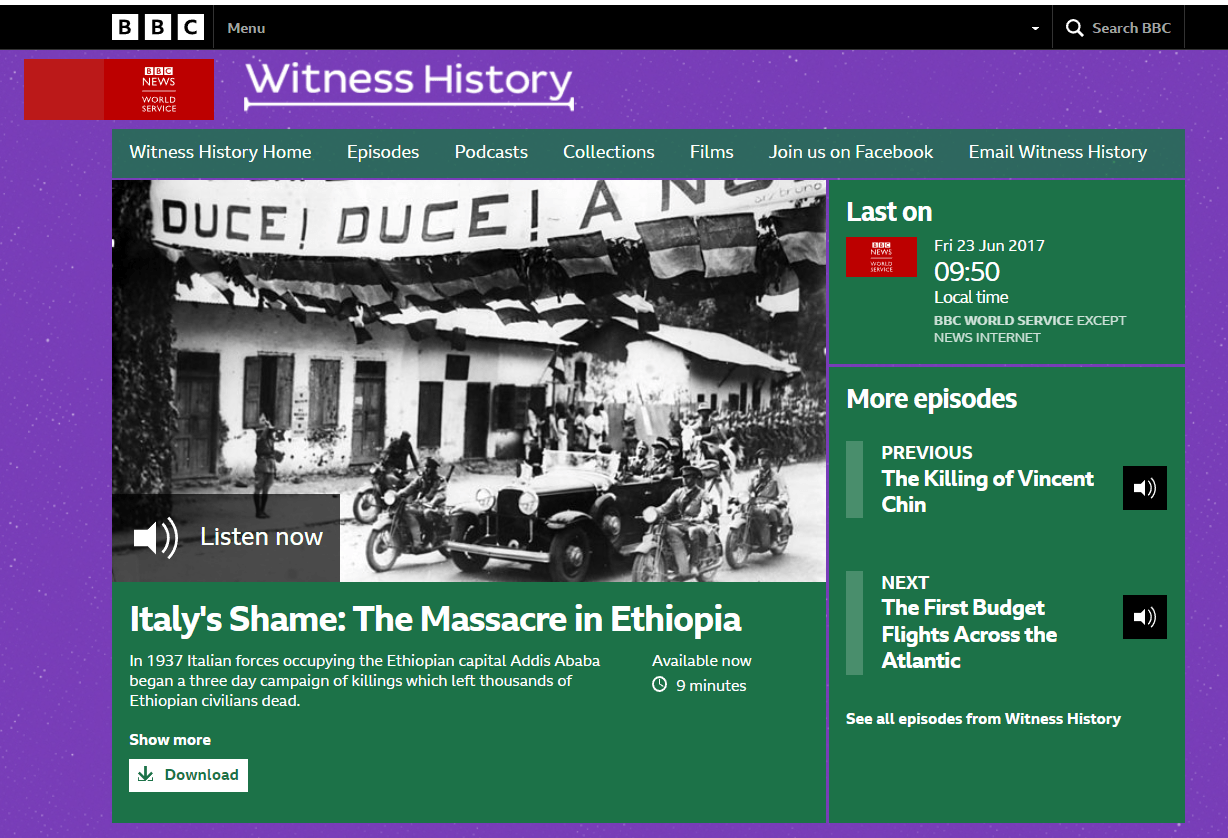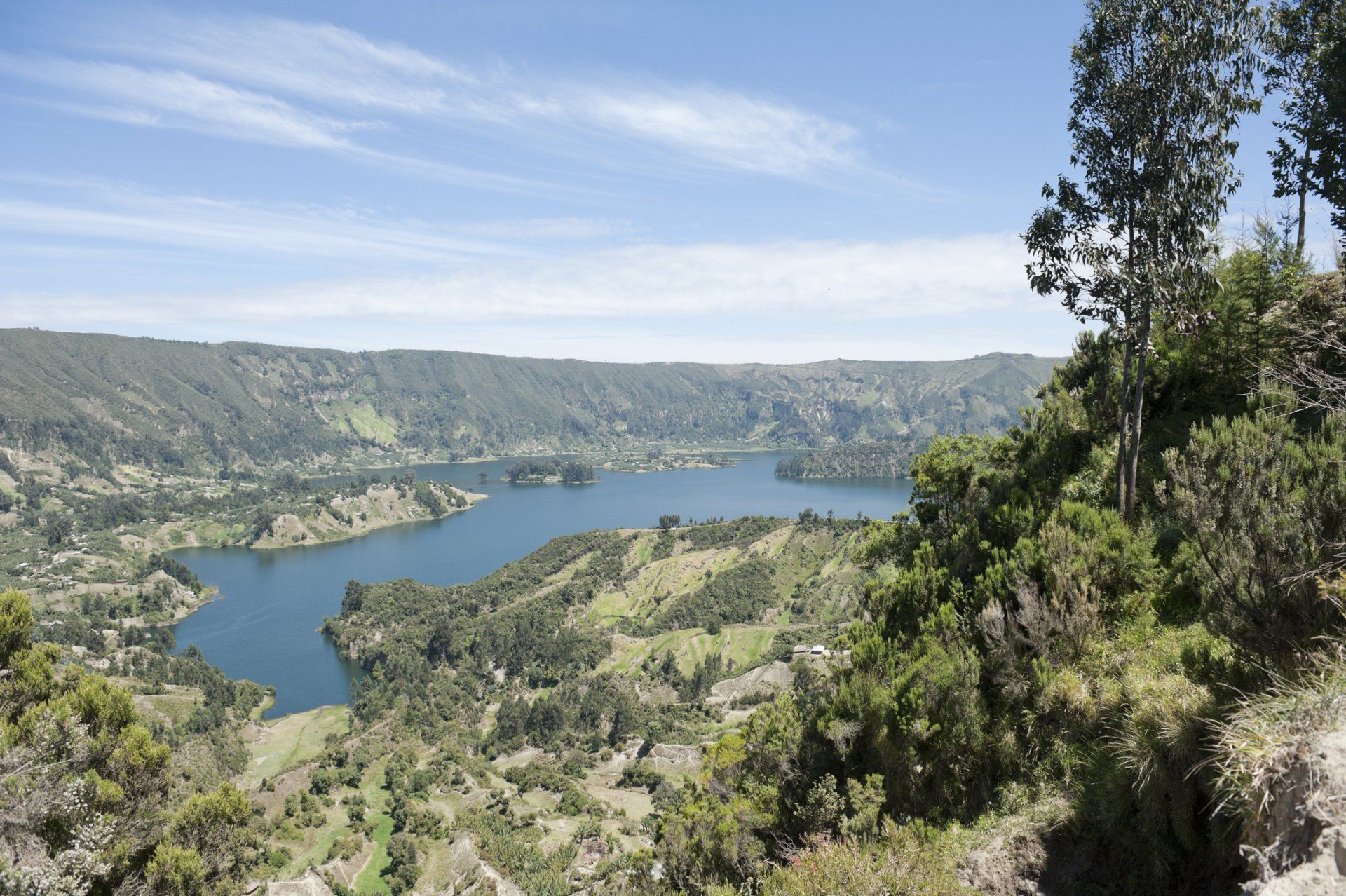A Journey - Chapter I, My Childhood
Chapter I
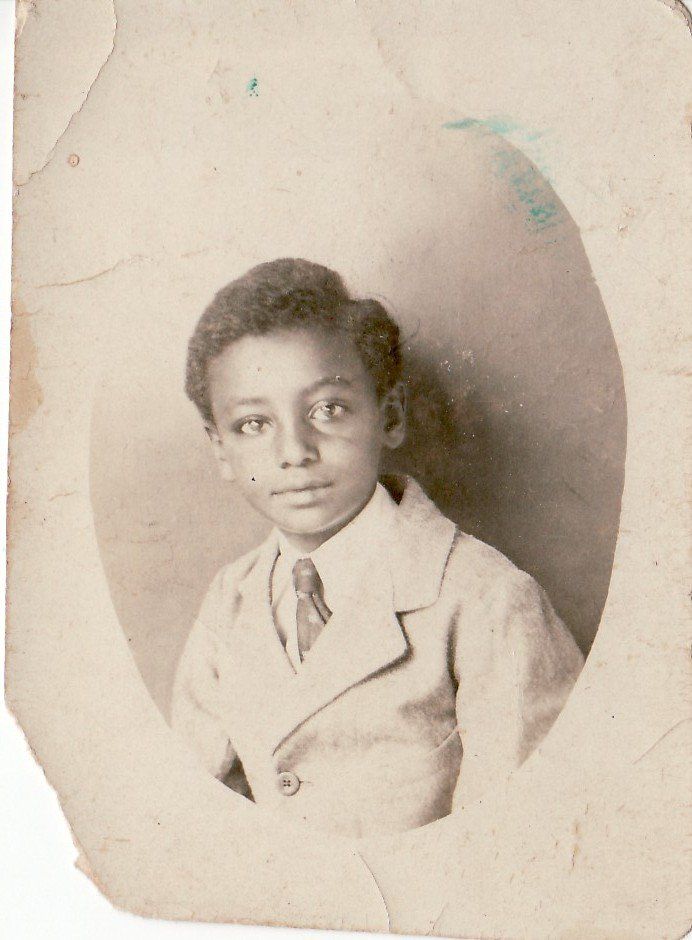
I have had the fortune to participate in many significant historical events and have witnessed the unfolding of huge social changes both in Ethiopia and across the world. Through my memoirs I wish to share these extraordinary events with my readers and let them partake to all that has shaped, fascinated and motivated me.
My memoirs are a work in progress and it is with pleasure that I am making a few extracts available on my website.
It is may be too late to start a life story that spans eight decades. Memory fades, events get blurred, names are forgotten and places get hazy, softened by passing time events and things lose their edge. Neither I am writing a history, it is simply a narration about my life and of the events and conditions through which I have lived. Therefore, I plead mea culpa for what is missing, mistaken or misplaced.
________________________________________________________________________
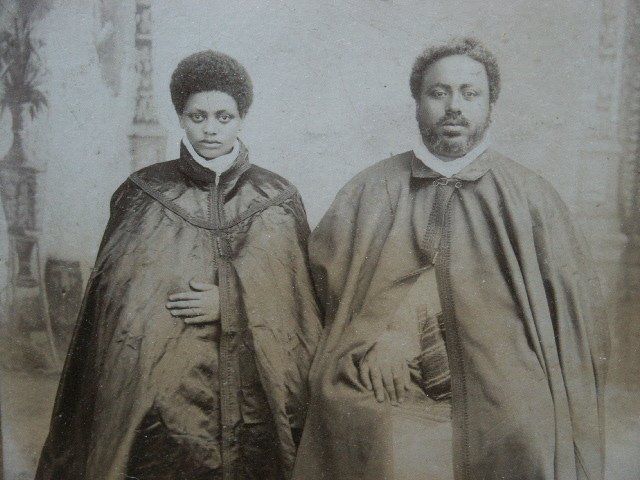
My parents, Woyzero Azaletch Gobena and Bejironde Zelleke Agidew
My early childhood
I was born in 1923 in Addis Ababa, Ethiopia. My father was Bejironde Zelleke Agidew, he was educated in Menelik II, he joined government service during the reign of Empress Zewditu and the regency of H.I.H. Ras Taffari Makonnen and became member of the Ministerial Cabinet of H.I.M. Emperor Haile Sellassie in which he served as Minister of Commerce, of Finance and Agriculture and Minister Plenipotentiary and Envoy Extraordinary to the United Kingdom, the French Republic and Ethiopian representative at the League of Nations, having carried out several prior missions abroad he was familiar with world affairs. My mother was Woyzero Azaletch Gobena, a cousin of the Emperor, she had accompanied my father in his foreign missions and after the liberation from the Italian occupation, was responsible for women affairs in the Imperial Court until its demise in 1974. Generally, I can say that my ancestors from both sides of my parents had always served the country and the State in one form or the other. My immediate family consisted of my younger sisters Ketsela and Zena, and my half-sister Woizero Mekdes-Work and brother Mesfin. W/ro Mekdes-Work was married to Fitawrari Makonnen Adefriss, she wrote the first Ethiopian cook-book. My brother attended the University of Lausanne in Switzerland and later graduated in civil engineering at the Ponts et Chausses in the University of Montpellier, France.
In the early years I grew up in a typical Ethiopian large household, what I remember most was that there were many people around, relatives, retinues, and servants. There was also a continuous stream of friends and visitors who came to see my father for some business or another. There were always a lot guests at meal times, especially on holidays. We the children had our nannies. A monk took care of the spiritual need of the household and thought children to recite orally the appropriate prayers and psalms until we memorized by heart the Psalms of David, which were in Geez that we did not understand. And the Amharic language, which by the way, our monk could not write. Our monk Aba Gabre-Medhin was a young man whose religious beliefs amounted to fanatism, he was severe in his teaching otherwise he was a very kind and generous man. In later years he became the Gebez of Lalibela where his great chef-d’oeuvre was to paint all the rock churches with red brick color.
Our compound on Menelik square was very large and contained several buildings. The main house, my grand parent’s large tukul, where my grand mother still lived in, a big dinning hall ‘gibre bet’ for large functions, several other houses for guests and servant quarters and the kitchens and brewing rooms, stores, the stables horses and mules and a garage for we had an automobile. It was an adventure for me to run from one place to the other in the compound, where something was always happening and to hear some braggadocio from retinues whose stories and arguments fascinated me. I remember particularly Basha Thomas who had soldiered with my grand father. He was a short ferocious looking man who carried a huge sword all the time. Whether they were true or not, to hear him tell of the great feats he had done in battle mesmerized me to no end. My imagination soared for hours combating ferocious enemies and hunting dangerous animals. I liked specially to go to my grand-ma’s house, she always fed me some delicious food.
My grandmother' s house was a very large tukul divided into various rooms with bamboo sticks tied together with colored leather tangs. The ceiling was also made the same way, with a nice pattern to it. My grand mother Bejironde Yetemegnu Wole was an extraordinary person on her own, she carried a title usually bestowed to men as my father’s and was at one time Governor of Yeju province, where she came from. Even in present days, a rare accomplishment for a woman in Ethiopia,. My grand father Negadras Agidew Imru was from Gondar, he was a merchant and owned caravans that carried goods from the sea coast to the interior and vice versa. He was in the retinue of Emperor Menelik when Addis Ababa was founded and organized the first customs. He was appointed Negadras (head of merchants) by the Emperor, a position that in those days included the governorship of Addis Ababa, which my father followed suit years later when he became Minister of Commerce. His deputy then was Fitawrary Haile Giorgis, later Prime Minister.
As I remember the population of Addis Ababa was very small, maybe twenty to thirty thousands which comprised a sprinkling of Europeans, Indians and Yemenite merchants and laborers. It superficies were large about seven kilometers radius from Menelik Square. There were a few asphalted roads, one running from the railroad station to Arat Kilo via the center Arada, and one connecting the old palace with the new palace at Sidist Kilo, otherwise there where only gravel roads or simply dirt paths. Automobiles and trucks were rare and limited to very limited distances, most of the travel was on horse or mule back and donkeys, mules and camels to carry goods. The air was clean and the fragrance of the eucalyptus trees was predominant. There were wild flowers and all kinds of bushes, some bearing edible fruits like koshim, kega and shola trees along the streets.
When I was about five years old my father was sent on several missions abroad and my mother went with him, Ato Wolde-Giorgis Wolde-Yohannes, later Tsehafi-Tezaz Minster of Pen and Minister of Interior, was his secretary. Ato Gessesse Retta also traveled with my father as his personal secretary. My parents were away frequently abroad. I don’t think that I missed them very much, we were always surrounded by our nannies, and relatives. However, what made a great impact on my life then, where the illustrated books they brought with them on their return. There were large illustrated volumes from the Louvre and from the British Museum, there were photos of the Pyramids and of the many other places they had visited. Although I could not read and write in any of the languages the visual perception of the images opened my mind to a new world. I use to sit hours gazing at the pictures and listening to my parents talking about their voyage. We also had many foreign friends visiting our house, they usually brought for us children some sweet and biscuits. My imagination was simply inflamed by all the stories they recounted and also because my elder half-brother Mesfin Zelleke was already in school in Europe.
Dr. Martin's family
My real journey into life began at this point, I think I was six years old, when my father sent me to Dr. Workneh Martin Eshete’s house to begin my proper education. Dr. Workneh and my father were close cousins from Gondar and they were also very good friends. Dr. Workneh was a medical doctor, a graduate from Edinburgh University, he was the last physician that was called to treat Emperor Menelik when his health had fallen beyond any remedy. Dr. Workneh was an exceptional man as well as his own personal history was. Captured together with the son of Emperor Theodros, H.I.H Prince Alemayhu, after the battle of Magdala and the suicide of the Emperor. He was taken to England with the Prince, then later to India with Gen. Napier’s contingent while the Prince remained at the British Court.
In India because the officers in charge of him could not attend to him properly they put him up with a missionary family, the Martins, who eventually adopted him. He did his schooling in India graduating as a medical doctor and served as such in the British Army. As the Indian medical degree did not qualify him for private practice he went to England and graduated as MD and Surgeon from the University of Edinburgh. He came back to Ethiopia, married Woyzero Ketsela Tulu, a cousin from my mother side branch of the family, and returned to India to serve as Chief Medical Officer in Burma. He returned to Ethiopia upon his retirement and became Governor of Chercher with the title of Azaj. Later he became Envoy Extraordinary and Minister Plenipotentiary of Ethiopia to the Court of St. James. He was about six feet tall and a very handsome man who excelled in sports. Dr. Workneh’s house was in Shola in a very large compound with all the compartments of a large Ethiopian household. They had many children, of which the elder five were in school in England. The two eldest sons, graduates from English Universities, were later murdered by the Italians. The house itself was big in the form of an H, in the left wing was the living room, bedroom and office, in the middle were the dining rooms and in the right wing were the children’s quarters and those of the English teacher.
For my life it was a complete transformation. The family having lived for long in India and England, the house was run in the best traditions of an English household with some Anglo-Indian touch to it. Our mistress was an English lady and all the family but the servants spoke English. All our meals were composed of English dishes. For me, used to shiro, alicha fitfit and the like, eating porridge, boiled eggs, ham and boiled potatoes was a complete revelation. Our mistress run our quarters strictly like an English boarding school. She was a firm disciplinarian so was Dr. Workneh. It did not take me long to learn English. I heard it all day long and it was the only way I could communicate with my cousins, having grown abroad they all spoke English. Dr. Workneh had a large library of English books and he received periodicals and magazines like the London Illustrated News. Even if I didn’t understand properly the texts the pictures use to fascinate me.
Moving to Vevey, Switzerland
In 1929 my father was appointed Envoy Extraordinary & Minister Plenipotentiary to France, the United Kingdom and as Representative at the Society of Nation. We traveled by train from Addis to Djibouti, and from by boat to France. By the way the journey to Djibouti by train took three days, with overnight stops in Awash and Dire Dawa. It was a colorful journey, the train stopped for a while at each station, in both Awash and Dire Dawa there were decent hotels to accommodate passengers. From Djibouti we embarked on a French ship. I don’t remember much of the voyage on sea. There was no one I could talk on the ship but for one elderly Englishmen who answered kindly to all the myriad questions I asked. One thing I remember vividly was a magician named GalaGala who came on board the ship in Port Said, he enchanted everybody with his humor and his magic tricks. For me it was the first time that I saw a magician. When we arrived in Marseille we were received by Mr. Bauvais, who was then the Ethiopian Honorary Council. In Paris we stayed at the Legation, which was in Rue Cortembert. Lij (later Ras) Andargacthew Messai was the Charge d’Affaires and Ato Tesfaye Tegegn was First Secretary. Ato (later Blatten Getta) Ephrem Tewwelde-Medhin was First Secretary in London. We did not stay long in Paris, with my parents, my sister Ketsela and I plus our nanny Woyzero Fanaye and the chauffeur Ato Alebatchew, we were to many for the facilities of the Legation. Fortunately His Imperial Majesty allowed us to say in his villa in Vevey, Switzerland, where we moved shortly after our arrival in France.
The villa in Vevey was very large with a big garden of which about one third was for fruits and vegetables. There as gardener called Hans. We had year round seasonal flowers, vegetables and fruits. The cook Aunt Clementine use to make excellent preserves. Mother had brought with her all sorts of Ethiopian spices and ingredients, between her and Iteye Fanaye they cooked all sort of our national dishes including teff injera and brewed tej. On one occasion on their tour of Europe H.I.H. Crown Prince Asfaw Wossen, H.I.H. Princess Tenagne Work and her husband Ras Desta Damtew, Dejazmatch Aberra Kassa, Dejazmatch Kassahun Hailu, come to visit us for a few days and mother gave them an Ethiopian banquet. There were not many Ethiopians in Switzerland at the time but for a few students, my brother Mesfin Zelleke, Asheber Gebre-Hywot, Leggesse Gabre-Mariam at the University of Lausanne, and Woyzero Senedu Gebru are those I remember. There were also few members of the Imperial Guard who came for training with Orelikon anti-aerial guns. I remember only Captain Alemayehu Filate (later Dejazmatch) which I saw frequently in the Place in later years. Ato Ashebir Gabre-Hiywot had written and published a book on Ethiopia which contained a photo of His Majesty in his very young age wearing a sheep skin, quite a normal thing at the time. The son of Ato Gebre-Hiywot Baykedagn, a progressive intellectual of the time, his rather provocative political views brought him the disfavor of the Court throughout his days.
When the guns were ready to be shipped to Ethiopia the Italian invasion was imminent. In the mean time the Society of Nations declared an embargo which only affected our country. The Italians could bring anything they wanted trough their colony of Eritrea. Anyway nobody tried seriously to stop Italy from invading Ethiopia, the Laval government in France that was cultivating close collaboration with Mussolini and Hitler, imposed a strict embargo on any arms destined through Djibouti. Actually they were the ones who recognized first the colonization of Ethiopia. Fortunately, the owner of Orelikon Mr. Buhrle who was a great supporter of Ethiopia, had them smuggled in the chassis of trucks that were sent to Ethiopia as regular transport vehicles. Mr. Buhrle was Ethiopia’s Honorary Consul in Switzerland until his death in the sixties.
In Vevey I went to a private school and started too learn French. The school was run by two elderly ladies, we were only about twenty students, most of us foreigners. The school curriculum was flexible and conform to our age group. However, they gave a big emphasis for language, literature and arts. They encouraged us to read a lot. A habit that has lasted me all my life, and for which I am still grateful to them. On Sundays we went to Pastor Flad’s house for Bible lessons which was given by one of the daughters, who was still alive a few years ago. Father Flad and his family, where missionaries who had gone to Ethiopia during the reign of Emperor Theodros. They had kept their contacts with Ethiopia since that time. There was also Mr. David Hall, with the same background, though in his case his mother was an Ethiopian lady from Gondar, who helped father with many tasks.
Once in a while we went to Paris with father. I remember seeing the 1930 World Fair where for the first in my life, I saw some African Art, wild animals and a multitude of other things. When we went to Paris father usually visited Count Lagarde who was a friend. Count Lagarde was French Minister in Ethiopia during Emperor Menelik’s reign. In recognition for the great services he did for Ethiopia while he was Governor of Djibuti and later as Minister to his Court the Emperor had bestowed on him the title of Duke of Entoto. When we visited him he lived in the Palais des Invalides in an apartment for retired high ranking officers, and was attended by an orderly from the French Navy. This contact of my father - Count Arnaud d’Andilly a nephew of Lagarde - served me enormously in later years when I was posted in France. Life in Vevey was a whole new experience at least for me, beside French I learned to swim, skating and an everlasting love for reading.
Copyright © Imru Zelleke All rights reserved
